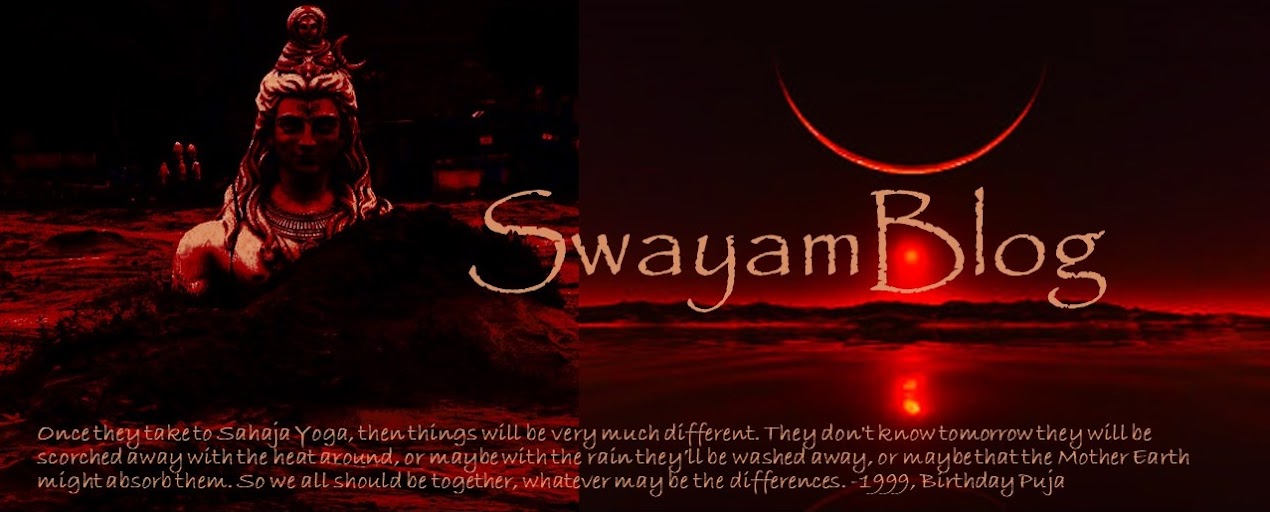« I just couldn’t bear it. »
 |
| ... something wonderful... |
Now, if you really become
a witness state, if you are in a witness state then
what will happen?
what will happen?
If you watch any such things that are happening:
it will subside.
it will subside.
If you are in a witness state and in that level, then no accident will take place in your sight. Even if there is an accident, then you can save the person, you can help the person very actively.
That’s in a very small scale, but even in every large scale, you can do it, something wonderful.
That’s in a very small scale, but even in every large scale, you can do it, something wonderful.
I remember, ...
I was not very old at that time, but we were living in a house very close to the Secretariat where they had a strike.
And they were asking for a separate Maharashtra or something.
And they were asking for a separate Maharashtra or something.
So the police was standing there and by the order of the Chief Minister,
they were shooting at everyone who was coming, anyone!
and they were enjoying the shooting game, all of them!
I saw all this
and
I just
couldn’t
bear it.
I just
went down
and
asked
the
police
to
stop.
They stopped, you’ll be amazed, they stopped!
Then I carried those people who were wounded up to my house, took out their bullets and all that, called the ambulance
and saved them.
But for that, one thing was there:
I was in
a state of witnessing,
so you become fearless.
There is no fear at all,
once you learn how to have
the state of witnessing.
Because,
when you are not witnessing ,
you get disturbed,
you get upset, you get excited,
you may join also this wrong type of people.
But if you are in a state of witnessing,
that itself is a power.
And that witnessing state helps you to win over so many difficulties of other people.
(Krishna Puja, Cabella, 1998)

+Government+Secretariat+-+19th+Century+Photograph.jpg)




